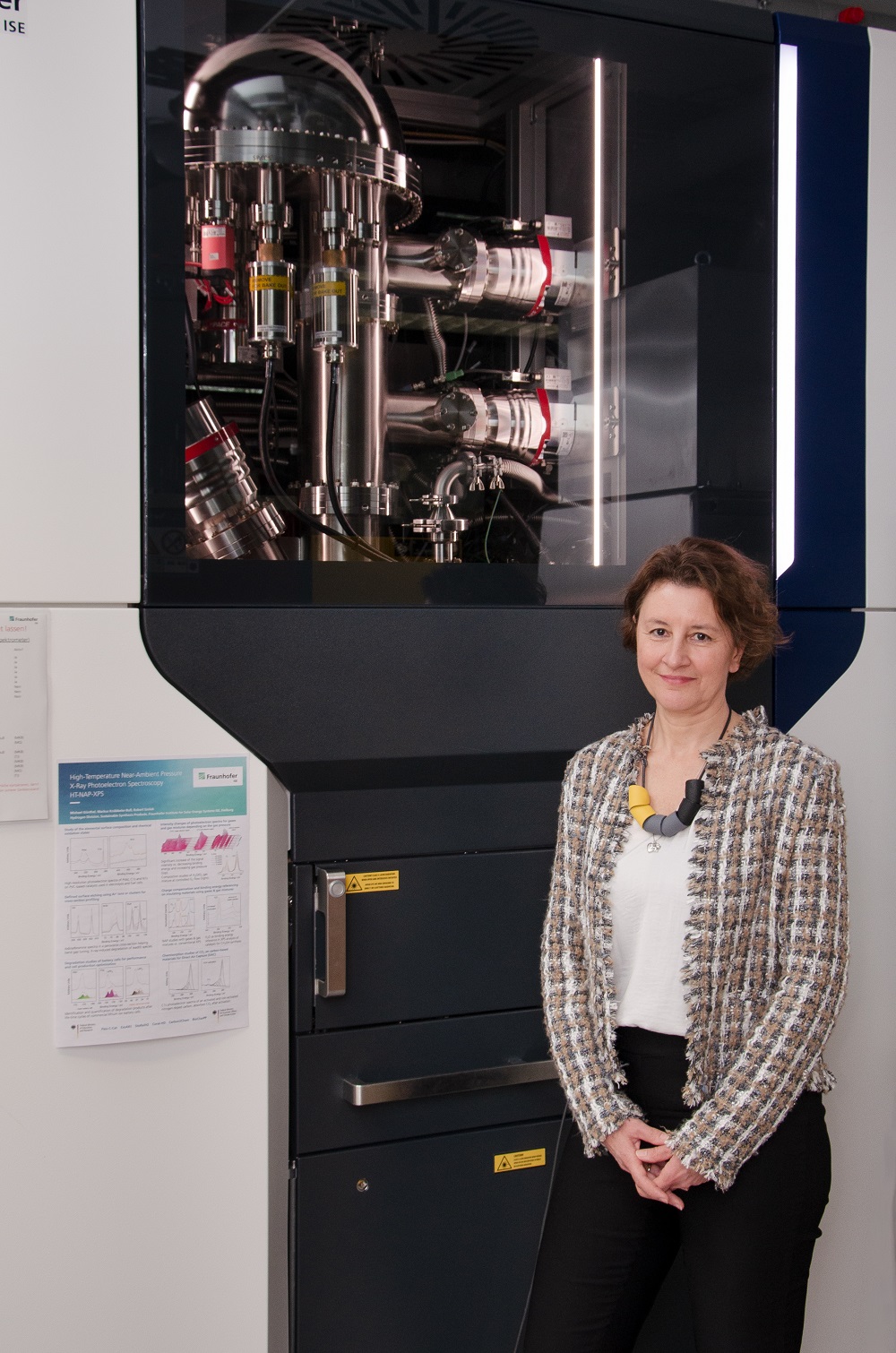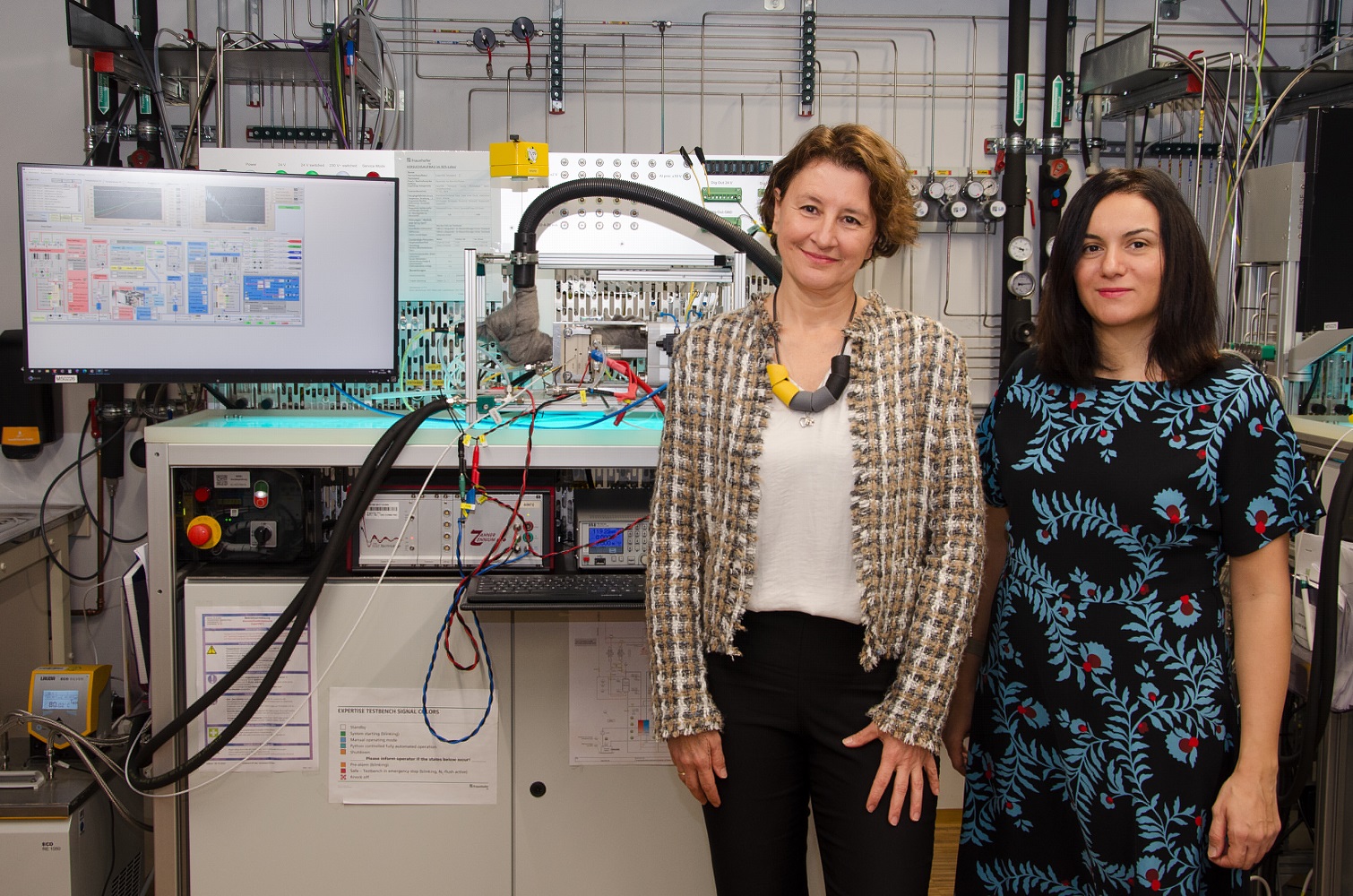News #42
Fraunhofer Bessel Award winner Dr. Jasna Jankovic conducts research at Fraunhofer ISE
Dr. Jasna Jankovic, Associate Professor at the Institute of Materials Science and Engineering at the University of Connecticut, has been awarded the Fraunhofer Bessel Research Award by the Alexander von Humboldt Foundation. She was nominated for the award by the Fraunhofer Institute for Solar Energy Systems ISE, where she will be working as a visiting scientist from December 1. The focus of the joint research work is the development of advanced ex-situ characterization methods for state-of-the-art, innovative fuel cell and electrolyser materials.

"We are delighted to host Dr. Jankovic at our institute. She is a world-wide recognized expert in microscopy evaluation of fuel cells and electrolyzers," explains Dr. Nada Zamel from the Fuel Cell Department at Fraunhofer ISE. The collaboration is expected to lead to major advances, particularly with regard to quality control in the production of catalyst layers. The work will focus not only on PFSA-free materials, but also on hydrocarbon-based catalyst layers. Dr. Jankovic’s expertise will help accelerate the development of non-PFSA ionomers and membranes to be used in future fuel cells and electrolyzers.
"We already utilize scanning electron microscopes and focused ion beam microscopes at Fraunhofer ISE and would like to make better use of them, not only in terms of image generation, but also in terms of image evaluation and the use of the information." explains Dr. Zamel.
Cooperation on Research Electrode Coating Processes
Dr. Jasna Jankovic and her colleagues from the University of Connecticut have already collaborated with Fraunhofer ISE on the current “Overall Research on Electrode Coating Processes” project. The project partners investigated the influence of different catalyst materials on the structure of the catalyst layer in connection with different process variations during coating. They also looked into the influence of different structures of the catalyst layer on the performance and aging behavior in electrolysis and fuel cells.
As part of the project funded by the German Federal Ministry of Transport and Digital Infrastructure (BMVI), Fraunhofer ISE produced membrane electrode assemblies (MEA) with different cathode loadings between 0.1 and 0.4 mg platinum/cm² and characterized their performance and stability electrochemically. In stress tests, a decrease in the electrochemically active surface area (ECSA) was measured, which is greater at low platinum loadings. In collaboration with the University of Connecticut, the ECSA loss was analyzed using an imaging technique based on transmission electron microscopy (TEM).
Dr. Jankovic's six-month research stay will not be only focused on current projects but will also be used to develop new German-American research projects. "Our collaboration has been in place since 2017 and will continue beyond May 2025," says Dr. Zamel. One possible joint research topic could be the use of machine learning in image analysis. The use of machine learning in material research is pivotal for identifying cost reduction routes, while increasing durability of the fuel cells and electrolyzers.
During her professional career, Dr. Jasna Jankovic has received numerous awards and grants, such as the Distinguished Engineering Educator Award, the National Science Foundation CAREER Award, the American Association of University Professors Award for Special Achievements and the 2019 Faculty Mobility Program Award from Connecticut and Baden-Württemberg. She has also received awards from the National Science Foundation and the Department of Energy in the USA, as well as the National Sciences and Engineering Research Council of Canada.
With the Fraunhofer Bessel Research Award, the Alexander von Humboldt Foundation and the Fraunhofer-Gesellschaft have been honoring internationally recognized researchers for their outstanding research achievements since 2005. Institute directors or senior researchers can nominate top researchers who completed their doctorate less than 18 years ago. The aim is to attract international luminaries for longer-term research stays in Germany. The program is open to researchers of all nationalities. Up to three prizes can be awarded annually.

Last modified: